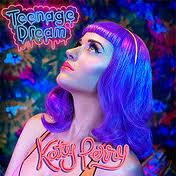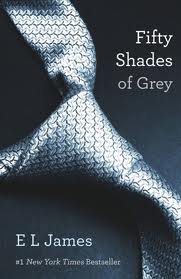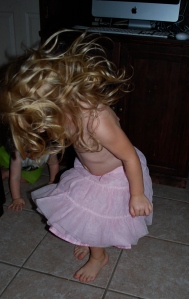In an effort to understand my recent infatuation with terrible pop music, I came to an unsettling (to say the least) conclusion: Adam Levine is Justin Vernon’s (Bon Iver) Fifty Shades of Grey. And I am a wretched hypocrite.
Gulp.
Sure, I could blame it on the fact that I never had Sirius Radio installed in the car we bought a year ago. Or that my CD player is broken. Or I could blame it on the kids; it’s their music, right? But when my six-year-old was three, she sangs songs like Ray LaMontagne’s Jolene: “A picture of you holding a picture of me in the pocket of my blue jeans; I still don’t know what love means.”
My current three-year-old sings, “I’m sexy and I know it,” and “I’ve got the moves like jagger.”
Something has happened to me. And I let it. There’s no one to blame but myself. I have fallen prey to the Twilight of the music industry.
I talked to a woman once who told me, “I don’t like to think while I’m reading; I read for pleasure.” And she joked that, as a writer and English teacher, I probably couldn’t understand that. But maybe I can. I mean, is that why I like Katy Perry? Because it’s easy, and I don’t have to think? Or maybe it’s ’cause, baby, you’re a firework.
Maybe I just wish the books that gave us both — thought and pleasure — were the ones that became bestsellers. But they’re not. The ones that sell are the ones that give us everything freely. The ones that have a lexile of 720 (which is roughly the equivalent of a fourth-grade reading level) and gratuitous vampire sex. Awesome. Who doesn’t love vampire sex written in a nine-year-old’s vocabulary? Oh, wait. Me.
Maybe I’m just conflicted. I try to teach my Advanced Placement student to distinguish what is considered a work of “literary merit” from what is not. He is supposed to be reading material with a lexile of 1200, (like Thoreau’s Walden) and I’m supposed to make him “enjoy” it. Meanwhile, his mom (and the rest of the country) is reading the Grey trilogy, which, since it was written first as “fan fiction” (I’m not even sure what that means) in response to Twilight, is probably at the same lexile level. I mean, let’s hope that it’s at least that high.
So that must mean that if there is literary merit, there must also be musical merit. And it must be the same for the good-but-undiscovered musicians. Like the poets and novelists who are trying to compose pieces of literary merit and watch as celebrities jump at the chance to turn Fifty Shades of Grey into a film, there are songwriters and guitarists who toil to fine-tune (literally) their craft, who beat themselves up for not “making it big” by the time they’re thirty-four, only to hear One Direction on every radio station. But they have to keep doing it because they can’t not (and, please, I beg you: keep doing it).
I understand, of course, that some of this is a matter of taste. We’re not all going to be drawn to the same kind of music or the same kind of literature. But I think we can all agree that some kinds of composition require more work (on the parts of both the writer and the reader/listener) than others. But we are a culture that loves what’s cheap and easy. And fast. It takes too long to figure out who The Blower’s Daughter (by Damien Rice) is and why the song is constructed the way it is, and we’re too lazy to care whether or not they went through with it in Hemingway’s Hills Like White Elephants.
Hot night. Wind was blowin’. Where you think you’re goin’, baby? (I watched the official Call Me Maybe video the other day and wondered if we’re supposed to believe it took an actual band to create that sound. Or maybe this is one of those cases in which we call upon the willing suspension of disbelief . . . )
I’m not saying everyone has to read Pynchon’s Gravity’s Rainbow or listen to Radiohead’s In Rainbows (although, you probably should). But maybe we could read A Picture of Dorian Gray along with Fifty Shades of Grey and know the difference. Like knowing the difference between Carly Simon and Carly Rae Jepsen.
My bleeding heart is telling me to swear off those mellifluous autotuned voices forever, that I wouldn’t truly be fighting the good fight for artists in general if I didn’t. But I fear a relapse. Would I start dancing on the tables to Justin Bieber (when only Outkast’s Hey Ya could make me do that in the past)? Or what if I became a closet-listener? Like those ladies who replace the jacket of Fifty with the jacket of something more profound, I’d rock out to Payphone in my car with all of the windows up.
But maybe it’s worth the risk. Maybe, as an artist (am I an artist?), it’s the right thing to do. If I’m going to make the investment, I want to invest in those who invested themselves in the first place. (I sort of envision all of us raising our pens and guitars and paintbrushes and drumsticks in the air as we revolt.)
And so, in the way that I have refused Stephenie Meyer and E.L. James for their cheapness, for their easiness, I refuse you and your mindless but oh-so-seductive ways, Adam Levine. And, really, what’s wrong with thinking, anyway?
As I write this, that same three-year-old is singing along with Justin Vernon, “And I told you to be patient. And I told you to be fine.”
My, my, my.







I have to say, it freaks me out that women are getting their unrealistic literary porn fix from Fifty Shades in public now . And that “good literature” seems like it’s becoming a sex thing. *sigh* everyone is a primate. 🙂
It seems to always be a sex thing. But it would be nice if the author left something to the imagination of the reader. Sheesh.
Smile 🙂 I couldn’t agree more but have to say it’s a lot easier to run and run and run while keeping up with Can You Blow My Whistle Baby (yes, it’s Flo Rida)
Yes, ma’am. And why is jane so damn cute when she sings “So hea’s my numba”?
This is the third time.
A few things: 1. I remember when we were in the trenches and just wanted them to read… anything. 50 Shades…I dont know. And while I know it’s there parents who are reading it or at least adults we have to remember…they are reading, and while it’s not Thoreau, or even Grisham society is beginning to read even if it is smut..ish. B. Candy Pop music is easy to digest and hasn’t much depth but everyone can shake their rump to it. III. I offer this twist tie conclusion to piece my reply together. Once watching an episode of JAG an old naval officer asked Harmon Raab if he knew what if felt like to feel old. Rabb replied in the negative, and the senior replied, “yes you do. It’s the same as you feel now. Sure you ache a bit more, and you’re stiff in the morning, and you aren’t as fast, but you still feel the same inside. No matter how old you are.” I submit that America is simply trying(as Journey put it) to hold on to that feeling. C’mon you hip, trendy English teacher. In the words of the immortal Snoop Dogg and Wiz Khalifa…we just wanna be young, wild, and free.
Well said, my friend. Well said. I mean, I don’t mind the smut (that’s not entirely true), I just wish we could balance it with something of substance. You have no idea how many times I’ve had to say, “No, my son is NOT named Edward because of Twilight.” And I like rump-shaking. Absolutely. 🙂
I honestly don’t think the lexile measure of a written work is a good metric to use for literary merit. Keep in mind that lexile measures are based largely on sentence length and word frequency. What this means in theory is that writers who use run-on sentences and jargon are scored higher than writers who edit for brevity and clarity. What this means in practice is that Hills Like White Elephants gets a score of 600, but the Student Companion to Ernest Hemingway scores over 1300. Which has more literary merit?
Books that provide us with both thought and pleasure won’t necessarily become best sellers. A book typically hits the best seller list shortly after it’s published. It’s a measure of reader grab, not staying power. If a best seller keeps you awake at night, it’s typically because you’re thinking, “What happens next?” rather than “What does this mean about my place in the universe?”
But I’d argue that many of them do become classics. Those are the books that are read, then re-read, then re-re-read because they make you think and because they’re well-written enough to stand up to the scrutiny of repeat exposure.
None of which means they will have high lexel measures. If anything, it means they will have lower ones. To continue with the example of Hemingway: he didn’t try to challenge his readers to decipher his words; he challenged them to find their meaning. There’s a difference.
So what does all this have to do with pop music? Not much. But it’s fun to listen to. Sometimes that’s enough. And sometimes it’s more fun to read Harry Potter than Moby Dick. Nothing wrong with that, either.
I agree. And I don’t think literary merit should be based on lexile. I mean, I idolize Heminway (to a fault, really). I just like the idea of balance. Or, at least that’s what I tell myself when my administrators are hounding me to get my students reading “more complicated text”.
What the hell is a Lexile? This is what my fingers ran to google (the link did not open for some reason), and low and behold, I found a nice animated short explaining exactly what the Lexile measure is. I was immediately as distrustful of this animated short explaining Lexile measure, as I am with the weird weird WEIRD animated commercials for depression and Adult ADD medications shown repeatedly during my Hulu binges.
But, as I watched the digitally designed “cut-outs” of students and parents being moved on an digitally designed white board something struck me.
How strange is it that some marketing/ad firm designed an informational video using code, and some serious computer language that mirrored a paper cut-out with figures drawn out in marker? Sometimes it becomes glaringly apparent that we are churning out the same shit in new shiny cases.
What I mean is, kids will learn to read. The Lexile just makes us all feel a bit more at ease with the process. It allows for a sense of control for teachers, parents, administrators, etc.
Don’t get me wrong. I have respect for the program. It appears to me that this approach is a valid and thoughtful attempt at wrangling with the variability and ambiguity of ability levels in a classroom. That said, it is still weird.
Speaking of weird (and bare with me…this is relevant), I was listening to some Alan Watts lectures the other day while I transcribed some Shaolin Kung Fu Instructional Manuals. Watt’s lecture entitled Seeing Through the Net is a good listen. I believe it speaks to the goal of gaining some grace/balance in working with things like the Lexile measure.
Why do we invent new technologies and matrix measures? Why do we invent a numerical series of I Phones, and assessments like the Lexile product? Alan Watts proffers that we do this in an effort to become god. In a sense, we are seeking control and ownership/power over our existence. He goes on to follow a likely path of action for a human being who has obtained godliness. I will spare you here, but it is really profound shit. Check it out before you get too far in life ;).
The point I guess I am making is that I think we must always maintain perspective in working with technology. Always always always see it for what it is worth-a tool. Like a monkey using a stick to get some bugs out of a log…if the stick isn’t pulling out the juicy one’s, then find another stick. Also, even if the stick is functioning well, keep in mind that the bugs will move on…the stick will break. It is always more about eating/learning than all the methods and assessments we can come up with to cushion the journey.
This is why my eye gets that skeptical shape when I watch animated shorts about brilliant algorithms worked up by geniuses that will help teach our kids. I think people can get really lost in the cushions.
And, for the record….I completely see the worth of Call me Maybe. It has provided my entire family with countless dance-offs in the kitchen. I will even admit scream/singing along to the Jimmy Fallon/Roots version of the song one fun night with my husband.
PS. Erin….thanks for letting me rant all over your blog. 😉
Yeah, we dance to it, too. I wish I could say I have the decency to turn off Adam Levine’s “One More Night” when Jane is singing it . . . but I don’t. Hee hee.
And I hear you on the lexile thing. It’s a tool, a measure. It’s useful, I think, but not an end in itself.
I do wish I could say kids will learn to read. I wish. Some kids will, of course. But a lot of kids won’t. A lot will learn to decode. Many won’t ever learn to comprehend, unfortunately. And the bigger issue is that they’re just not doing it, whether they can or can’t. They’re just not reading.
Naive….yes I am. I am not a teacher, and I have not had the experiences you have had with kids. I remember when you worked for the place in the Boston area. Man, you loved those kids. We (earth, humanity…whatever 😉 are so lucky to have you!